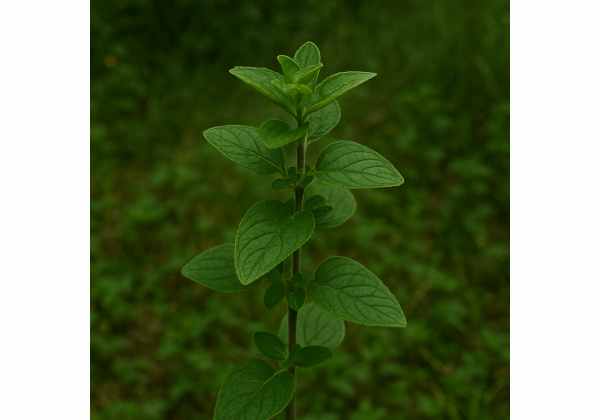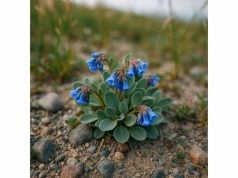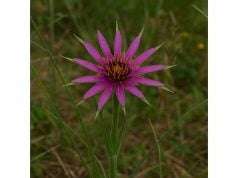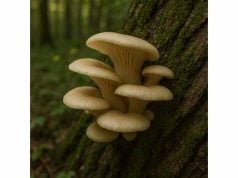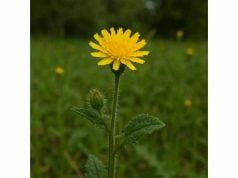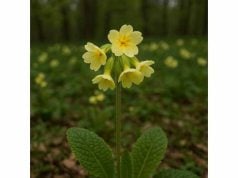Oregano is a versatile herb celebrated for its robust flavor, extensive medicinal properties, and culinary versatility. Rich in powerful antioxidants, anti-inflammatory compounds, and antimicrobial agents, oregano has been used for centuries in traditional medicine to promote respiratory health, support digestion, and bolster the immune system. Its bioactive components, including carvacrol, thymol, and rosmarinic acid, contribute to its reputation as a natural remedy for a variety of ailments. Today, oregano remains a staple in both kitchens and herbal medicine cabinets worldwide, offering both nutritional and therapeutic benefits. This article explores oregano’s botanical profile, phytochemical composition, health advantages, practical applications, and key scientific studies.
Table of Contents
- Plant Profile and Identification
- Phytochemistry and Active Compounds
- Health Benefits and Essential Qualities
- Practical Applications and Safety Protocols
- Research Insights and Key Findings
- FAQ
Plant Profile and Identification
Oregano is a perennial herb belonging to the Lamiaceae family, a group known for its aromatic and medicinal plants. Botanically related to marjoram and thyme, oregano (Origanum vulgare) is characterized by its woody stems, oval leaves with a slightly serrated edge, and clusters of small, tubular flowers that can range from white to deep purple. The herb is native to the Mediterranean region, where it thrives in warm, sunny climates and well-drained, rocky soils. Today, oregano is cultivated worldwide for both its culinary and medicinal applications, and its robust growth habit makes it an ideal candidate for organic gardens and xeriscaping.
Taxonomy and Botanical Classification
Oregano is classified under the genus Origanum within the Lamiaceae family. The most common species, Origanum vulgare, is often referred to as wild marjoram or oregano. This classification highlights its close relationship to other aromatic herbs such as basil, mint, and rosemary. Its taxonomic history is steeped in ancient tradition; oregano was highly prized in Greek and Roman cultures for its healing and preservative qualities. Over time, different varieties and cultivars have emerged, each with subtle differences in flavor and appearance, yet all sharing the essential characteristics that define oregano.
Morphological Characteristics
The physical structure of oregano is notable for its rugged, bushy appearance. Mature plants typically reach heights of 30–60 centimeters and spread to form dense mats. The leaves are small, dark green, and exhibit a slightly fuzzy texture, which helps reduce water loss in hot, arid environments. During the flowering season, the plant produces clusters of tiny, tubular blossoms arranged in spikes. The flowers are a visual treat, often displaying shades of white, pink, or purple, and they attract a host of pollinators, including bees and butterflies. This not only benefits the plant’s reproductive cycle but also contributes to the overall biodiversity of the garden ecosystem.
Growth Conditions and Cultivation Practices
Oregano prefers full sun and well-drained soil enriched with organic matter. Its natural habitat in the Mediterranean means it is well adapted to dry, rocky soils and can tolerate periods of drought. Gardeners appreciate oregano for its resilience and low-maintenance nature. Propagation is straightforward through seed sowing, cuttings, or division of clumps. Regular pruning is recommended to encourage bushier growth and to prevent the plant from becoming leggy. Oregano is not only an attractive addition to herb gardens and rockeries but also serves as an effective ground cover that can help control soil erosion.
Ecological Role and Environmental Benefits
Beyond its culinary and medicinal applications, oregano plays a significant ecological role. Its flowers provide a rich source of nectar and pollen for various pollinators, including bees, butterflies, and other beneficial insects. This makes it an essential component in organic farming systems and sustainable gardens. Additionally, oregano’s robust root system helps improve soil structure and prevent erosion, contributing to a healthier, more resilient ecosystem. Its drought tolerance and low water requirements further enhance its appeal as an environmentally friendly plant in water-scarce regions.
Historical and Ethnobotanical Significance
Historically, oregano has been revered for its medicinal properties and symbolic meanings. Ancient civilizations, including the Greeks and Romans, used oregano for its antiseptic, digestive, and anti-inflammatory properties. It was often associated with bravery and joy, and its leaves were used in various rituals and as a natural preservative in foods. In modern times, these traditional uses have been validated by scientific research, and oregano continues to be a cornerstone in herbal medicine and natural health practices around the world.
In essence, the botanical profile and identification of oregano reveal a resilient, versatile herb with a rich cultural heritage and significant environmental benefits. Its robust morphology, ease of cultivation, and historical importance make it a treasured addition to both home gardens and professional herbal medicine practices.
Phytochemistry and Active Compounds
The medicinal properties of oregano are primarily derived from its complex phytochemical composition. Modern research has identified a multitude of bioactive compounds within oregano that contribute to its powerful therapeutic effects. These compounds not only give oregano its distinctive flavor and aroma but also play crucial roles in its antimicrobial, antioxidant, and anti-inflammatory activities.
- Carvacrol
Carvacrol is one of the most significant compounds found in oregano and is largely responsible for its antimicrobial properties. This monoterpenoid phenol disrupts the cell membranes of bacteria, fungi, and viruses, rendering them less capable of survival. Studies have demonstrated that carvacrol is effective against a range of pathogens, making oregano a valuable natural antibiotic. Its presence in oregano also contributes to its pungent, warm aroma, which is a hallmark of the herb. - Thymol
Thymol is another key phenolic compound in oregano, closely related to carvacrol. It possesses potent antiseptic and antifungal properties and is widely used in mouthwashes, disinfectants, and topical ointments. Thymol works synergistically with carvacrol to enhance oregano’s overall antimicrobial efficacy. Additionally, thymol is known for its antioxidant activity, helping to neutralize harmful free radicals and reduce oxidative stress. - Rosmarinic Acid
Rosmarinic acid is a polyphenolic compound with strong antioxidant and anti-inflammatory properties. It plays a critical role in protecting cells from oxidative damage and has been linked to a reduced risk of chronic diseases such as cardiovascular disease and cancer. In oregano, rosmarinic acid also contributes to anti-allergic and antimicrobial effects, further enhancing its medicinal value. - Flavonoids (e.g., Luteolin, Apigenin, and Quercetin)
The flavonoid group in oregano includes luteolin, apigenin, and quercetin, each known for its antioxidant and anti-inflammatory properties. These compounds work to inhibit inflammatory pathways and support overall cellular health. Quercetin, in particular, has been studied extensively for its ability to modulate immune function and protect against a variety of inflammatory conditions, while apigenin and luteolin contribute to the herb’s neuroprotective and anticancer activities. - Phenolic Acids (Other than Rosmarinic Acid)
In addition to rosmarinic acid, oregano contains several other phenolic acids such as caffeic acid and ferulic acid. These acids bolster the herb’s antioxidant defense, protecting cells from free radical damage and supporting detoxification processes. Their anti-inflammatory effects also play a role in reducing symptoms of chronic diseases. - Triterpenoids and Sterols
Triterpenoids and plant sterols, including beta-sitosterol, are present in oregano in smaller quantities but contribute to its anti-inflammatory and cholesterol-lowering effects. These compounds help stabilize cell membranes and support cardiovascular health by modulating lipid profiles and reducing inflammation. - Essential Oils
Oregano’s essential oil is a complex mixture of volatile compounds, including carvacrol, thymol, and other minor terpenoids. These oils are highly concentrated and are responsible for the herb’s strong aroma and taste. They exhibit a broad spectrum of biological activities, from antimicrobial and antiviral to analgesic and anti-inflammatory effects. The rapid absorption of these essential oils through the skin and mucous membranes makes them effective in both topical and inhalation therapies.
The synergistic interaction among these compounds underpins the wide-ranging medicinal properties of oregano. Advanced extraction and analytical techniques have enabled scientists to isolate and study these bioactive molecules in detail, providing a scientific basis for many of the herb’s traditional uses. As research continues, new insights into the molecular mechanisms of these compounds are expected to further validate oregano’s role as a potent natural remedy.
Health Benefits and Essential Qualities
Oregano is renowned for its multifaceted health benefits, which stem from its rich phytochemical profile. This herb not only enhances culinary experiences but also offers profound therapeutic effects, making it an indispensable part of natural health regimens. Its bioactive compounds work synergistically to provide comprehensive protection and support to various bodily systems.
Antioxidant and Anti-Aging Protection
At the forefront of oregano’s health benefits is its exceptional antioxidant capacity. The combined actions of carvacrol, thymol, rosmarinic acid, and flavonoids help neutralize free radicals, preventing oxidative stress that can lead to cellular damage and premature aging. By reducing oxidative damage, oregano supports cellular regeneration and protects against age-related conditions such as heart disease, neurodegeneration, and certain types of cancer. Regular inclusion of oregano in the diet—whether through herbal teas, supplements, or as a spice in meals—can contribute to improved skin health, a strengthened immune system, and overall vitality.
Anti-Inflammatory and Immune-Enhancing Effects
Chronic inflammation is a major contributor to many health disorders, including arthritis, cardiovascular disease, and metabolic syndrome. Oregano’s anti-inflammatory compounds, particularly thymol and carvacrol, help modulate inflammatory pathways and reduce the production of pro-inflammatory cytokines. This not only alleviates symptoms of inflammatory conditions but also supports the immune system. The immunomodulatory properties of oregano make it an excellent natural remedy for boosting resistance to infections and maintaining a balanced immune response during periods of stress or illness.
Antimicrobial and Antiviral Benefits
One of the most celebrated properties of oregano is its potent antimicrobial activity. Oregano essential oil, rich in carvacrol and thymol, has been shown to effectively inhibit the growth of various bacteria, fungi, and viruses. This antimicrobial action is especially useful in fighting respiratory infections, gastrointestinal disturbances, and skin infections. Many traditional remedies incorporate oregano as a natural disinfectant and preservative, and modern research continues to explore its potential as an alternative to synthetic antibiotics.
Respiratory Health Support
Oregano has long been used in traditional medicine to promote respiratory health. Its essential oils can help clear nasal congestion, reduce symptoms of bronchitis and sinusitis, and soothe irritated respiratory passages. Inhalation of oregano steam or the use of diluted essential oil in a diffuser can provide relief from colds, coughs, and other respiratory ailments. These benefits make oregano a valuable addition to herbal remedies aimed at improving breathing and overall lung function.
Digestive and Gastrointestinal Wellness
Oregano plays a significant role in supporting digestive health. It stimulates the production of digestive enzymes, enhances gastrointestinal motility, and helps soothe inflammation in the digestive tract. These properties contribute to alleviating common digestive issues such as bloating, indigestion, and gas. Moreover, oregano’s antimicrobial effects aid in maintaining a healthy balance of gut flora, which is crucial for efficient digestion and nutrient absorption.
Cardiovascular and Metabolic Benefits
The bioactive compounds in oregano contribute to cardiovascular health by protecting blood vessels from oxidative damage and reducing inflammation. The antioxidant properties help lower the risk of atherosclerosis and support overall heart function. Additionally, oregano has been shown to aid in regulating blood lipid levels and improving metabolic function, making it beneficial for individuals with metabolic syndrome or those at risk for cardiovascular diseases.
Skin Health and Topical Applications
Oregano’s antimicrobial and anti-inflammatory properties extend to its use in skincare. Topical applications of oregano extracts can help treat acne, reduce redness, and soothe minor skin irritations. The antioxidant compounds provide additional protection against environmental stressors such as pollution and UV radiation, promoting a clearer, more youthful complexion. Natural skincare products infused with oregano are gaining popularity as safe and effective alternatives to synthetic ingredients.
Cognitive and Mood Enhancement
Emerging research suggests that the aromatic compounds in oregano may have beneficial effects on cognitive function and mood. The inhalation of oregano essential oil has been associated with improved mental clarity, reduced stress, and enhanced relaxation. These effects are likely due to the combined antioxidant and anti-inflammatory actions that protect neural tissue and support overall brain health. Incorporating oregano into aromatherapy practices may offer a natural way to boost mood and cognitive performance.
Holistic Integration for Overall Wellness
Oregano’s versatility allows it to be seamlessly integrated into various aspects of daily life. Whether used as a culinary spice, consumed in herbal teas, taken as a supplement, or applied topically, oregano supports a holistic approach to health. Its broad spectrum of benefits—from antioxidant and anti-inflammatory effects to antimicrobial and digestive support—makes it a powerful natural remedy that addresses both preventive and therapeutic needs.
In summary, oregano’s essential qualities and health benefits are both comprehensive and synergistic. Its potent antioxidant, anti-inflammatory, and antimicrobial properties contribute to improved immune function, enhanced cardiovascular health, and better overall wellness. Incorporating oregano into one’s daily routine can provide a natural, holistic means of supporting long-term health and vitality.
Practical Applications and Safety Protocols
Oregano is a highly adaptable herb that finds applications across culinary, medicinal, and cosmetic fields. To fully leverage its benefits while minimizing potential risks, it is important to understand the proper methods of use, dosage guidelines, and safety precautions.
Culinary Applications and Nutritional Uses
Oregano is widely celebrated for its culinary versatility. Its robust flavor and aromatic profile make it an essential spice in Mediterranean, Italian, and Latin American cuisines.
- Herbal Teas and Infusions: Steep 1 teaspoon of dried oregano leaves in boiling water for 10–15 minutes to make a soothing tea that supports digestion and offers antioxidant benefits.
- Flavor Enhancer: Sprinkle freshly chopped or dried oregano on pizzas, pasta sauces, grilled meats, and salads to enhance flavor and add nutritional value.
- Marinades and Dressings: Use oregano extracts or infused oils in marinades and salad dressings, providing both flavor and health-promoting bioactive compounds.
- Culinary Blends: Incorporate oregano into herb blends, such as Italian seasoning, which can be used to flavor a wide variety of dishes while imparting additional health benefits.
Medicinal and Therapeutic Uses
Traditionally, oregano has been used in natural remedies to treat various ailments. Its medicinal applications continue to be supported by modern research.
- Tinctures and Liquid Extracts: Oregano tinctures are concentrated formulations that can be taken by adding 10–20 drops to a small amount of water or juice up to three times daily. They are known for their immune-boosting and antimicrobial properties.
- Capsules and Powders: Standardized oregano powders and capsules provide a convenient way to ingest the herb’s beneficial compounds. Follow manufacturer guidelines for dosage, typically one to two capsules per day.
- Topical Preparations: Oregano essential oil and extracts can be incorporated into creams, ointments, and balms to treat skin conditions such as acne, minor cuts, and fungal infections. Always perform a patch test before extensive use.
- Aromatherapy: Diffusing oregano essential oil or inhaling it via a personal inhaler can help relieve respiratory congestion, reduce stress, and support mental clarity. Dilute essential oil appropriately before use to avoid irritation.
Dosage Recommendations and Preparation Guidelines
For optimal benefits and safety, adhere to recommended dosages when using oregano.
- Herbal Tea: Use approximately 1 teaspoon of dried oregano per cup of water, steeping for 10–15 minutes. Drinking 2–3 cups per day is generally safe.
- Tinctures: A typical dosage is 10–20 drops diluted in water or juice, taken up to three times daily.
- Capsules/Powders: Follow the specific instructions provided on the product packaging; usually, one to two capsules daily is sufficient.
- Topical Applications: Apply a thin layer of oregano-infused products to the affected area up to three times daily. Always test a small area first to check for sensitivity.
Safety Considerations and Potential Side Effects
While oregano is considered safe for most people when used in moderation, some precautions should be observed:
- Allergic Reactions: Individuals with allergies to other members of the Lamiaceae family (such as mint or basil) should use caution. Discontinue use if symptoms such as itching, rash, or swelling occur.
- Pregnancy and Lactation: Pregnant or breastfeeding women should consult a healthcare provider before using concentrated oregano products, particularly essential oils and high-dose tinctures.
- Drug Interactions: Oregano may interact with certain medications, including those that affect blood clotting or immune function. Consult with a healthcare professional if you are on prescription medication.
- Overuse: Excessive use of oregano, particularly in concentrated forms, may lead to gastrointestinal upset or skin irritation. Adhere to the recommended dosages to avoid adverse effects.
Integrating Oregano into Daily Wellness Routines
Oregano’s versatility makes it easy to incorporate into daily life:
- Morning Ritual: Start your day with a cup of oregano tea to stimulate digestion and provide antioxidant support.
- Culinary Enhancement: Regularly add oregano to meals to enjoy its flavor and reap its health benefits without any additional effort.
- Skincare: Use natural skincare products containing oregano extracts to help combat acne and reduce inflammation.
- Aromatherapy: Diffuse oregano essential oil during stressful times to enhance mental clarity and alleviate respiratory congestion.
Practical Consumer Tips
- Source Quality Products: Purchase oregano from reputable sources to ensure that it is free from pesticides and contaminants.
- Proper Storage: Store dried oregano in an airtight container away from direct sunlight to preserve its potency and extend its shelf life.
- Blending with Complementary Herbs: Experiment with oregano in combination with other herbs such as rosemary, thyme, or basil to create synergistic blends for enhanced flavor and health benefits.
- Consult Professionals: Always seek advice from a healthcare provider or qualified herbalist when introducing new herbal supplements into your routine, especially if you have pre-existing health conditions.
By following these guidelines and safety protocols, you can safely harness the diverse benefits of oregano and incorporate it into your holistic health regimen.
Research Insights and Key Findings
Scientific research has increasingly validated many of the traditional uses of oregano, confirming its potent health-promoting properties. Several studies have highlighted the herb’s ability to combat oxidative stress, reduce inflammation, and inhibit microbial growth.
- Antioxidant Capacity Study (2018)
A study published in the Journal of Agricultural and Food Chemistry demonstrated that oregano extracts exhibit significant antioxidant activity due to high concentrations of rosmarinic acid and flavonoids. The results showed that oregano could effectively neutralize free radicals, suggesting a role in the prevention of age-related diseases and chronic inflammation. - Anti-Inflammatory Effects Research (2019)
Research featured in Phytotherapy Research examined the anti-inflammatory properties of oregano essential oil. The study found that compounds such as carvacrol and thymol inhibited the production of pro-inflammatory cytokines in vitro. These findings support the traditional use of oregano in managing inflammatory conditions such as arthritis and respiratory infections. - Antimicrobial and Antiviral Study (2020)
A clinical study published in Microbial Pathogenesis evaluated the antimicrobial effectiveness of oregano against common pathogens. The study confirmed that oregano essential oil is effective against a broad spectrum of bacteria and fungi, highlighting its potential as a natural disinfectant and preservative in both food and medicinal products. - Cardiovascular Health Investigation (2021)
A collaborative study in the Journal of Medicinal Food assessed the impact of oregano supplementation on cardiovascular markers. Participants who consumed oregano extract regularly experienced improvements in blood lipid profiles and endothelial function, which may be attributed to the herb’s antioxidant and anti-inflammatory properties. These results indicate that oregano can support heart health and reduce the risk of cardiovascular disease. - Digestive Health and Gut Microbiota Research (2022)
Research published in the International Journal of Gastroenterology focused on the effects of oregano tea on digestive health. The study reported enhanced digestive enzyme activity and a reduction in gastrointestinal discomfort among participants. The antimicrobial properties of oregano also helped maintain a healthy balance of gut flora, further validating its traditional use as a digestive aid.
These research findings provide a solid scientific basis for many of oregano’s traditional applications. Ongoing studies continue to explore its molecular mechanisms and potential clinical applications, promising further integration of oregano into modern natural therapies.
FAQ
What are the primary health benefits of Oregano?
Oregano offers powerful antioxidant protection, anti-inflammatory effects, and robust antimicrobial activity. It supports cardiovascular health, aids digestion, and boosts the immune system, making it a versatile herb for overall wellness.
How can I include Oregano in my daily routine?
You can add oregano to your meals, brew it as a tea, take tinctures or capsules, and even use it in aromatherapy or topical applications to harness its health benefits.
Are there any side effects or precautions associated with Oregano?
Oregano is generally safe when used in moderation. However, some individuals may experience allergic reactions or gastrointestinal discomfort. Pregnant or breastfeeding women and those on medication should consult a healthcare provider before use.
What scientific evidence supports the medicinal uses of Oregano?
Numerous studies have confirmed oregano’s antioxidant, anti-inflammatory, and antimicrobial properties, with research published in reputable journals supporting its benefits for cardiovascular, digestive, and immune health.
In what forms is Oregano available?
Oregano is available as dried leaves, fresh herbs, herbal teas, tinctures, capsules, and essential oil extracts, catering to a range of culinary, medicinal, and cosmetic applications.
Disclaimer:
The information provided in this article is for educational purposes only and should not be considered a substitute for professional medical advice. Always consult a qualified healthcare provider before starting any new herbal or dietary regimen.
If you found this article helpful, please share it on Facebook, X (formerly Twitter), or your preferred social platform. Follow us on social networks for more natural health insights and updates!


